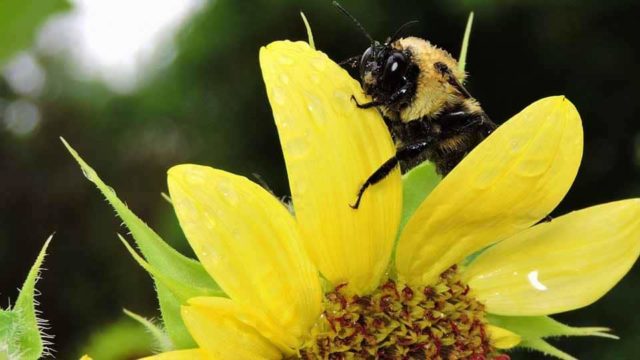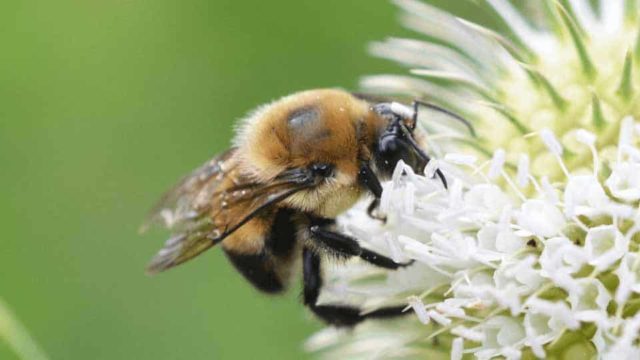Last week, I was in court with my colleagues, Laura and Bronwyn, fighting to end lax regulatory practices that put pollinators at risk. We made a forceful case that Canada’s Pest Management Regulatory Agency (PMRA) did not have the necessary science and did not consult the public when it made a series of decisions allowing a neonicotinoid pesticide called Thiamethoxam to be used widely, exposing pollinators to dangerous risks for more than a decade.
It will be a few months before we receive the decision on this case, but I’m very proud of the work that we did — made possible thanks to your support.
It took years of preparation to get to this point. Along the way, supporters like you helped Ecojustice lawyers fend off multiple attempts by the government and pesticide company respondents to shut down the case before it could even reach a full hearing.
But it was worth it, to have a chance to use the law to protect precious pollinators from neonicotinoids.
The lowdown on neonics
Neonics are systemic pesticides, meaning they are taken up by plants and expressed in all tissues, including pollen and nectar. Studies show that these pesticides are likely to harm “non-target organisms” like bees and other pollinators.
They have been linked to wild pollinator declines and honeybee die-offs, and the declines in insects also harm the insectivorous birds that depend on them. These pesticides are also water-soluble, so they leach into our soil and water, where they persist in the environment for extended periods of time — sometimes for hundreds of days, or longer.
Many jurisdictions have woken up to the dangers of neonics and have banned them outright, or are moving towards a ban. In April 2018, the European Union agreed upon a total ban on neonicotinoid insecticide use, except inside closed systems such as greenhouses. In 2015, Montreal banned all neonics within the city limits.
But toxic neonic pesticides like Thiamethoxam have been approved for use in Canada for years while the PMRA has waited on the science about the risks they pose to pollinators. We argued that this is contrary to federal legislation, as the Pest Control Products Act requires the PMRA to have “reasonable certainty” that no harm will result to the environment from the use of pesticides, before they are registered for use. We are alarmed that the PMRA has, in effect, adopted a “register first, ask questions later” approach that subverts the law and puts our environment at risk.
With this case, we want to pave the way for more rigorous reviews of toxic pesticides in Canada, particularly those with the potential to harm pollinators, like neonicotinoids.
Your support is critical
Ecojustice’s work is 100 per cent funded by donors and organizations that share our values. That means that our work to protect pollinators — and all of our other cases — would not be possible without your generosity.
Earlier this month, Ecojustice asked you to send in messages of support. I was floored to receive more than 500 thoughtful, passionate, and personalized notes, including this one from Christopher Shirley, who lives in Vancouver:
“I wish you every success in your endeavours. I am sure that if the pollinators could communicate with you, you would receive a very loud buzz — your work is important to them and to all living beings.”
And from John O’Neill in North Vancouver:
“When you win, we all win. Let’s see science trump expediency, and as proof of this, let’s see a healthy return of pollinators, red wing blackbirds, and other crucial links in our ecosystem.”
Thank you to everyone who supported us through this important fight. It will be a few months before we get a decision on the case, but we will be sure to keep you posted on what happens next.



